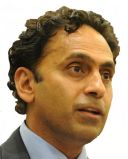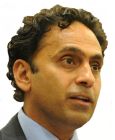Education
Critical Strategies to Get Your Brain Ready to Learn
Key strategies to get ready for a new school year and effective learning.
Updated September 15, 2023 Reviewed by Kaja Perina
Key points
- There are a handful of key strategies that can prepare us to learn well.
- Knowing how to assess one's knowledge and doing it often (retrieval practice) increases learning.
- Putting into place mechanisms to spread out when we study is a critical tool to improving how we learn.

Every start of school year, students and parents focus on the wrong things. Not bad things, just the wrong things. Yes, getting the right supplies, the pens, binders, book bags, and the right gear, the shoes, shirts, tops, and other paraphernalia, are important. Yes, moving from late-night show watching and social media streaming towards earlier bedtimes, are also important. Unfortunately, these pale in contrast to some brain training preparation that is the best for learning but often gets paid scant attention. Let’s change that.
Warming up the Brain: Know What to Do
When I asked an award-winning gymnast and 4.0 student how she did it, her answer had two key parts. Know how to do it. Practice, practice, practice. Unfortunately, most students, whether in high school or even college, do not know how to study. Misperceptions about how to study abound. In numerous studies of student behavior, one thing is clear: Most students believe the best way to study is to reread their notes. The horrible truth is that rereading is one of the least effective ways to study!! What, then should students be prepared to do to learn more efficiently?
Fifty plus years of cognitive science provides us with some key strategies to study. John Dunlosky and colleagues saved us a lot of trouble by sifting and winnowing through reams of research and ranking what the most effective strategies are. We both also wrote a book for students to give them ways to Study Like a Champ. Here are some key takeaways.
Whereas common behaviors such as highlighting and rereading ranked at the bottom of the pile, two key study strategies rose to the top. To prepare for a new school year, students need to know how to test themselves and how to space out their studying. Easier said than done of course, so let’s get more specific.
Retrieval Practice
The technical term for self-testing is retrieval practice and the crux of the idea is this: To solidify memory traces of content, try to recall the content over and over. If you are studying parts of the eye, close the book, take out a blank sheet of paper (or open a new computer file) and list all the parts you can. Then check your answers against the book. Do this over and over and you will have a memory for the parts of the eye that will last a long period of time. Here is something important: Retrieval practice is good even when you do not feel you know all the material well. It is the act of trying to recall the material and then checking what you did not know that strengthens the memory.
Spaced Practice
Self testing yourself within a short period of time does not provide long term benefits. If you tested yourself on eye parts, waited five minutes and did it again, the benefits will be small. Instead, the key is to spread out or space your studying. In stark contrast to just cramming before a test, spacing involves studying material over a long period of time. The different study sessions can even focus on the same material, but the key is to space them out. The combination of retrieval practice and spaced practice (referred to as successive relearning) is one of the most robust effects found in cognitive science and knowing about it and doing it are essential for students.
The Devil in the Details
Although we can tell students to use these two important study strategies, there is one big problem that could preclude their use: Poor planning. Students may buy planners to start the school year but do they use them well?
Coupled with strong study strategies, a student needs to be sure they plan well. Many faculty, parents, and friends may counsel a student to plan well but the student needs some pragmatics. The moment they get their syllabi for classes, they should write down all their due dates. Many course management systems do this automatically but the student should know where to look and set notifications to work for them. But this is all old hat. To truly practice the best cognitive tools, students need to plan different study sessions of the same material and now get down to specific details.
The most effective plan should essentially map out near-every waking hour of the week. Plan for social times, for physical activity, for friends and family, but also plan for each and every class. Don’t stop there. Plan WHAT you will do during the study session. Instead of just listing ‘psychology 6-8 or biology 8-9pm, actually plan to A) Read material before it is discussed in class, B) Review notes taken in class, and C) test yourself on the material. Even in a single week, plan on testing more than once. Adding this level of detail to the plan is more likely to be successful.
Contextualizing It All For College
These key strategies are great but for students heading to college, there are also some big-picture items to keep in mind. College is not the 13th year of high school. There is new jargon and new and different expectations. What is a 'discipline'? What is 'general education' and why is it important? What are the best ways to read, write, and think critically? Most importantly, how should you adapt your studying to compensate for different disciplinary differences? These are all questions that few if any intro to college course addresses. Knowing the answers is also critical to building brains ready for studying. Retrieval and spacing practice, and planning are great, but getting ready for the novelty and challenge that is college is critical too.
Learning is challenging, but with the right strategies and the effort to practice (practice, practice) we can get our brains ready to learn effectively. Onwards to the school year.




